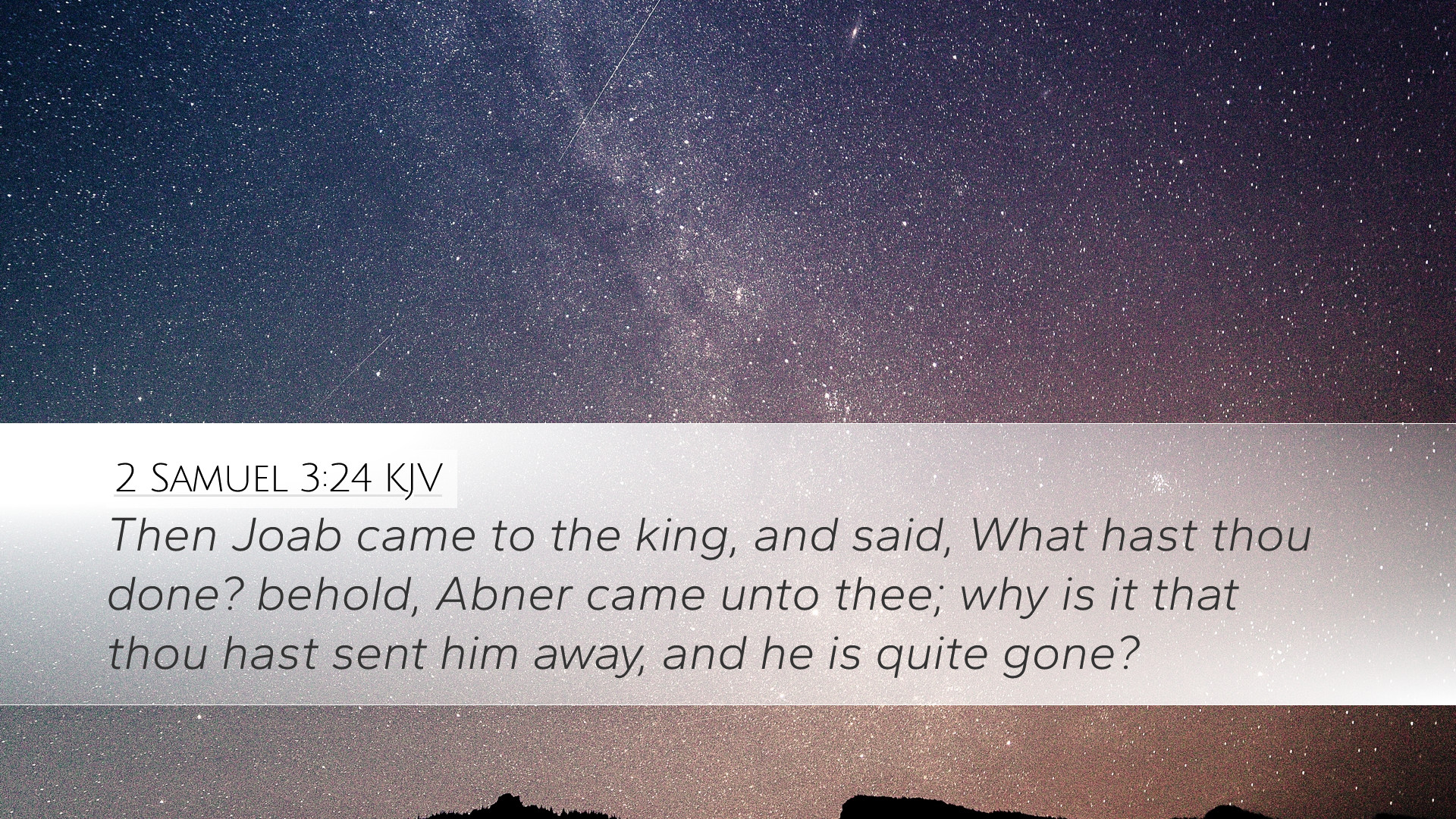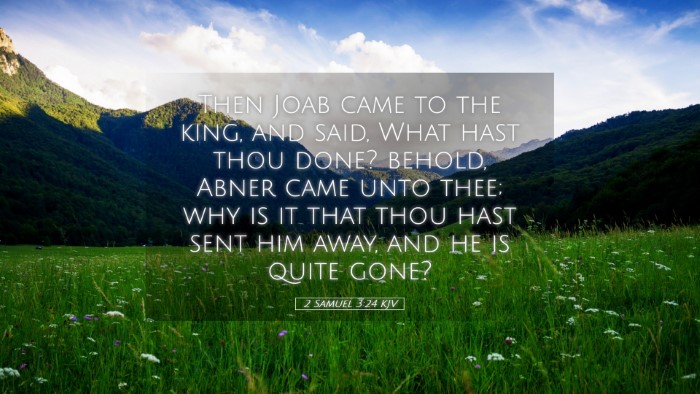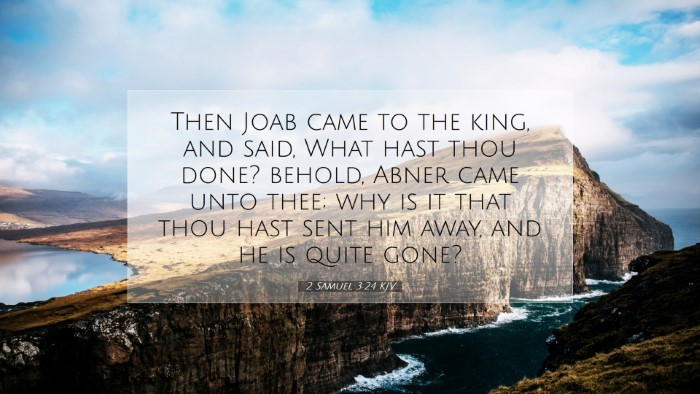Commentary on 2 Samuel 3:24
Verse Context: 2 Samuel 3:24 depicts a key moment during the tumultuous period of David’s rise to kingship, highlighting the political intrigue and personal conflicts that permeated the reigns of Saul and David. This verse occurs amidst the backdrop of ongoing civil strife and conflict for control over Israel.
Text of the Verse
"Then Joab went to the king and said, 'What have you done? For Abiathar had already fled to Kirjath-jearim.'" - 2 Samuel 3:24 (NKJV)
Overview of Commentaries
This commentary consolidates insights from several respected public domain commentaries, focusing on the meaning and implications of the verse in light of historical and theological contexts.
Matthew Henry's Commentary
Matthew Henry emphasizes the emotional dynamics in David's court and the intricate relationships between the various characters involved. Joab, as the commander of David's army, represents loyalty but also ambition. Henry notes:
- Conflict of Loyalty: Joab challenges David’s decisions, questioning his actions that appear to exempt others while judging Abner. This reflects the complexity of loyalty in a leader’s circle.
- Attempting Control: Joab’s questioning signifies a broader concern among commanders regarding David’s burgeoning power and the shifting nature of alliances.
- Implications for David's Rule: Henry observes that David’s response—and his decisions leading to this moment—were indicative of the challenges he would face as king, balancing authority with the loyalty of his military leaders.
Albert Barnes' Notes
Albert Barnes provides a detailed examination of the implications of Joab’s confrontation with David. His commentary delves into:
- Joab's Character: Barnes notes Joab's strength as a military leader juxtaposed with his moral ambiguity. His actions could be seen as self-serving, which raises questions about David’s ability to govern righteously.
- Context of the Allegiance: The reference to Abiathar fleeing to Kirjath-jearim indicates the fracture within the Israelite camp, which signals to Barnes that unity is jeopardized when personal vendettas take precedence.
- Political Implications: Barnes implies that David’s decisions regarding Abner hint at David’s broader strategy for consolidating power, but Joab's objections reveal the underlying tensions that could unsettle his reign.
Adam Clarke's Commentary
Adam Clarke approaches the text with a focus on the social and political climate of the period, interpreting Joab’s words as a significant moment indicative of power struggles:
- Joab's Accusation: Clarke points out Joab’s acute observation is not merely a personal grievance but highlights the precarious position of David’s governance strategy.
- Analysis of Abiathar’s Flight: He discusses the symbolism behind Abiathar’s escape and the significance of Kirjath-jearim as a designated place of refuge, illustrating the need for security amid political upheaval.
- Foreshadowing Struggles: Clarke comments on how this scene foreshadows future conflicts within David’s reign, particularly concerning loyalty, integrity, and the ramifications of personal relationships on leadership.
Theological Reflections
This verse serves as a rich text for theological reflection regarding the nature of leadership, loyalty, and the complexities of human relationships in times of political upheaval. Several themes emerge:
- Leadership and Accountability: The responsibilities of a leader are intricately linked with their interpersonal decisions and the loyalties that dictate their governance. David’s decisions reflect his intentions but also show the vulnerabilities leaders can encounter.
- The Nature of Power: Joab’s challenge to David suggests that power is never absolute; it is mediated through relationships and perceptions in the political arena.
- Divine Providence: The unfolding events serve as a reminder of God's overarching sovereignty in human affairs, where even the intentions of flawed individuals are subject to His divine plan.
Conclusion
This commentary on 2 Samuel 3:24 provides a multidimensional view of the intricate elements of leadership, loyalty, and political strife found within the text. For pastors, students, theologians, and Bible scholars, engaging with this verse invites deeper reflection on the dynamics of power, the morality of leadership, and the fidelity expected from those in authority. In examining this moment in David’s life, one can glean timeless principles on how to lead justly and wisely amid the complexities of human relationships.


